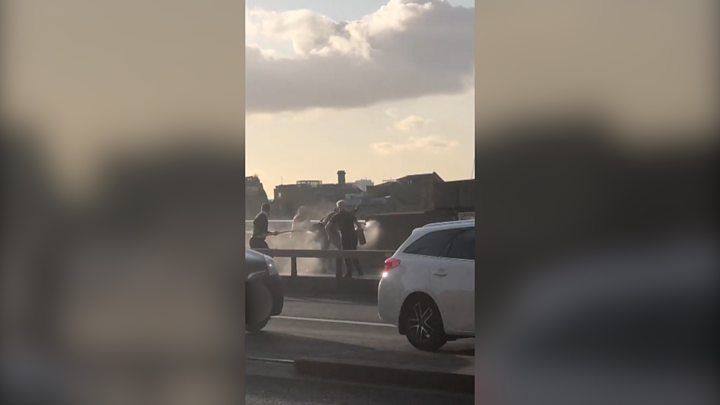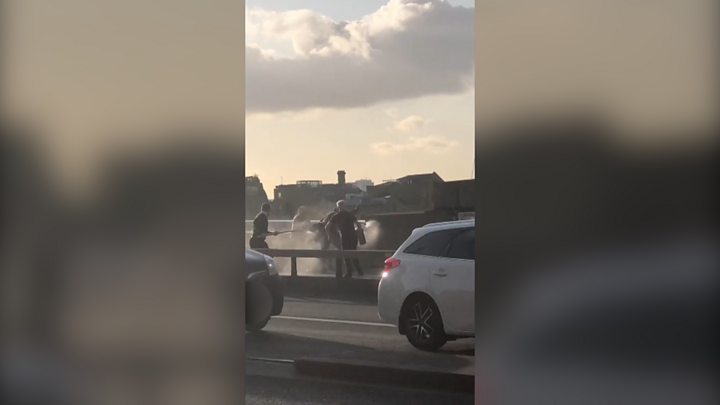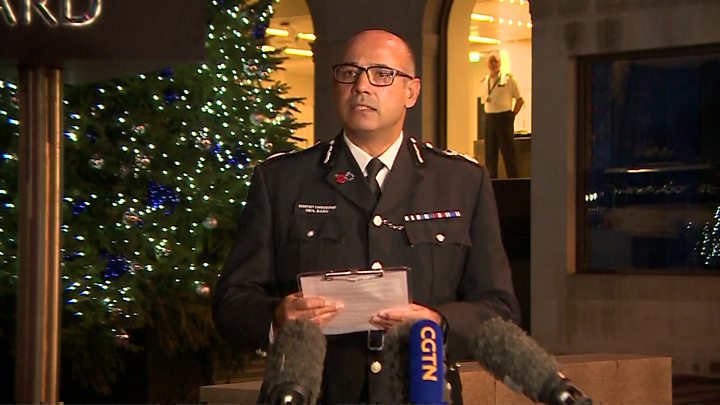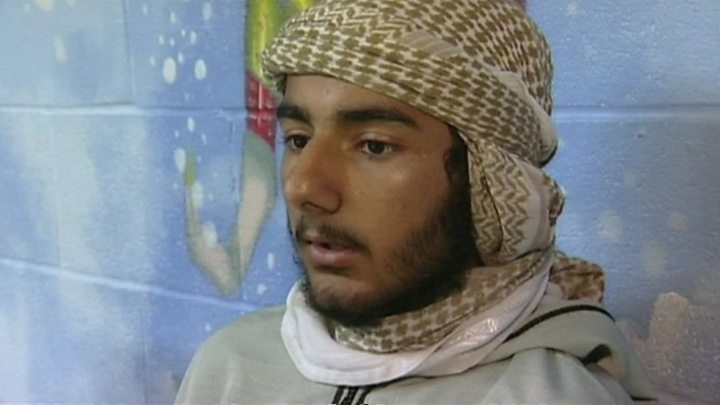London Bridge attack sparks terror sentence release review
PM claims scrapping early release would have prevented London attack but Corbyn points to budget cuts. …


Media playback is unsupported on your device
An urgent review of the licence conditions of people jailed for terror offences has been launched by the Ministry of Justice following Friday’s London Bridge attack.
Two people were killed and three were injured by Usman Khan, 28, a convicted terrorist who served half of his time.
PM Boris Johnson claimed scrapping early release would have stopped him.
But Labour leader Jeremy Corbyn will blame budget cuts for “missed chances to intervene” in a speech on Sunday.
As many as 70 people convicted of terror offences, who have been released from prison, could be the focus of the government review.
Khan, 28, who was shot by police during Friday’s attack, was jailed over a plot to bomb the London Stock Exchange in 2012.
He was sentenced to indeterminate detention for “public protection” with a minimum jail term of eight years.
This sentence would have allowed him to be kept in prison beyond the minimum term.
But in 2013, the Court of Appeal quashed the sentence, replacing it with a 16-year-fixed term of which Khan should serve half in prison.

Media playback is unsupported on your device
He was released on licence in December 2018 – subject to an “extensive list of licence conditions”, Met Police Assistant Commissioner Neil Basu said.
“To the best of my knowledge, he was complying with those conditions,” he added.
‘Mandatory minimum sentence’
Visiting the site of the attack on Saturday, the prime minister said the practice of cutting jail sentences in half and letting violent offenders out early “simply isn’t working”.
“If you are convicted of a serious terrorist offence, there should be a mandatory minimum sentence of 14 years – and some should never be released,” he said.
“Further, for all terrorism and extremist offences, the sentence announced by the judge must be the time actually served – these criminals must serve every day of their sentence, with no exceptions.”
Mr Corbyn told Sky terrorists should “not necessarily” serve their full sentences automatically, but that it “depends on circumstances”.
Mr Johnson has vowed to “toughen up” sentencing for violent offenders, if the Conservatives win the general election on 12 December, but the Liberal Democrats have accused him of “politicising” the tragedy.
Mr Davey, Liberal Democrat deputy leader, told Sophy Ridge on Sunday that he was “alarmed” at Mr Johnson’s reaction to the London Bridge attack.
“In the middle of an election, we shouldn’t be making political capital out of a tragedy, and he’s doing that, and he’s doing that in a way which is misleading people about what the law actually says.”

Media playback is unsupported on your device
The father of Jack Merritt, one of two victims who died in the attack, said in a now-deleted tweet that his son “would not wish his death to be used as the pretext for more draconian sentences or for detaining people unnecessarily”.
Foreign secretary Dominic Raab said that David Merritt should be listened to, declaring “nobody wants to see the politicisation of this”.
But he added: “The question is, who is going to make sure that the overriding priority is avoiding any unnecessary risk to the public?”
“I think if you look at what we’re saying on sentencing… it is the Conservatives who are saying we will stop at nothing to keep people safe.”

Media playback is unsupported on your device
Khan was living in Stafford and wearing a GPS police tag when he launched his attack inside Fishmongers’ Hall, where he was one of dozens of students and offenders attending a conference hosted by Learning Together, a prisoners’ rehabilitation programme.
The attack then continued onto London Bridge itself.
Mr Merritt, a course co-ordinator for Learning Together, was one of two people fatally stabbed. A woman who also died has not yet been named.
NHS chief executive Simon Stevens said three victims remained in hospital following the attack – two in a stable condition and one with less serious injuries.
Mr Basu said officers had been working “flat out” to try to establish the “full circumstances” of the stabbing.
How the law on early release changed
2003 – The Criminal Justice Act meant most offenders would be automatically released halfway through sentences, but the most “dangerous” would have their cases looked at by a Parole Board. Sentences with no fixed end point, called Imprisonment for Public Protection (IPP), were also introduced.
2008 – Criminal Justice and Immigration Act removed review process by Parole Boards, meaning more offenders were released automatically halfway through sentences. Judges could still hand down life sentences or IPPs for dangerous offenders.
2012 – Usman Khan was handed a sentence with no fixed end date because of the risk he posed to the public. In the same year, the Legal Aid, Sentencing and Punishment of Offenders Act scrapped IPPs and reintroduced the role of the Parole Board for extended sentences of 10 years or more – this time after two-thirds of the sentence has passed. But that did not mean those already serving IPPs would have them lifted.
2013 – During an appeal, Lord Justice Leveson ruled that Khan’s indeterminate sentence should be substituted for an extended sentence with automatic release at the halfway point.




